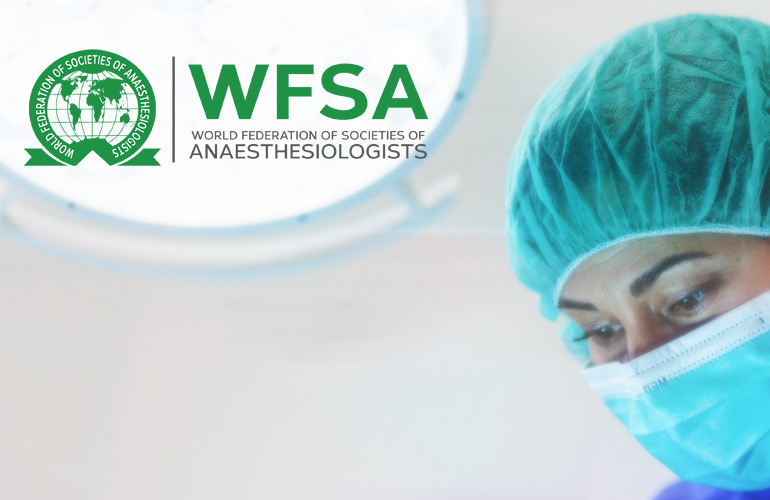To inform discussions at the WHO Regional Committee for Europe on efforts to strengthen mental health services, WFSA, in its capacity as a non-state actor in official liaison with WHO, has issued a statement highlighting the importance of prioritising health workers’ occupational well-being.
The World Federation of Societies of Anaesthesiologists (WFSA) welcomes the European Framework for Action on Mental Health’s recognition of the importance of health worker’s occupational well-being.
The Framework’s recommendation to attract, train and retain competent health and social care professionals through the provision of dignified working conditions and opportunities for continuous professional development is a necessary step to help ensure healthcare systems can effectively respond to, and recover from, the impacts of COVID-19.
With 136 member societies, representing hundreds of thousands of anaesthesiologists from over 150 countries, WFSA is the foremost global alliance of anaesthesiologists. Our members along with other intensivists are at the forefront of the response to COVID-19. Anaesthesiologists along with their clinical colleagues, continue to withstand the increase in demand for healthcare that COVID-19 has placed on already stretched services.
Pre-COVID, 5 out of 7 billion people did not have access to safe anaesthesia care, the availability of this lifesaving service has been further limited by the challenges placed on frontline health care service provision by this pandemic. The direct impact of COVID on the health of anaesthesiologists has exacerbated pre-existing workforce shortages.
Anaesthesiologists are trained to focus on the health of their patients often at the expense of their own health. Analysis shows that there has been a significant and sustained impact on the mental health and professional well-being of these frontline clinicians. Occupational fatigue, burnout syndrome, chemical dependency, mental depression, suicidal ideation are just some of the everyday crises that anaesthesiologists and other frontline health care workers face.
Evidence shows there is a direct link between occupational health and patient safety. The WHO-WFSA International Standards for a Safe Practice of Anesthesia state that “the most important monitor is a trained and vigilant anesthesia provider”.
We must protect our most valuable resource, frontline health workers, by providing a safe working environment. Health professional wellbeing must be prioritised by member states to counteract ill-health, burnout and non-functioning health professionals.
To ensure that our health workers are mentally and physically able to continue to provide a high standard of patient care, there is a vital need to develop and support the implementation of workplace programmes that promote mental health and occupational well-being.
WFSA recommends occupational well-being programmes include:
- Regulated working hours
- Mandated rest breaks
- The creation of a supportive environment to counteract ill-health and burnout
- Addressing chronic workforce deficiencies in anaesthesia and intensive care through investment in the scale- up of training and continued medical education to improve patient outcomes.
Further resources
Download the WFSA Statement on Professional Well-being for the for 71st WHO European committee meeting






